Saddam Hussein is probably going to face a trial by an Iraqi tribunal for the things he did while dictator of Iraq. Trials of deposed dictators, almost by necessity, involve the application of law ex post facto (at least with regards to national law.) If they did not, then the dictator could argue that since the law was whatever he wanted it to be, nothing he did was a violation of the law.
From a logical standpoint, however, this is not a serious objection. The dictator cannot simultaneously argue that when he had the power, he could make the rules, but that those now in power cannot make the rules.
So Saddam Hussein will face justice, and he deserves what he gets.
But what if Hussein had not been deposed and eventually captured? What if he had given in to President Bush’s ultimatum just before the war, and had gone to live in the south of France (or somewhere else that would take him)? Would an Iraqi (or other) tribunal still be able to bring him to justice for his crimes?
There’s certainly international precedent for allowing it. The only reason General Pinochet was not extradited from the United Kingdom to Spain to stand trial was because of his health. And even though the Chilean constitution granted him immunity from prosecution in Chile, that immunity was later revoked.
Now, there is a fairly clear argument that, since the Chilean constitution was essentially imposed on Chile by Pinochet when he stepped down as leader of the country, the provisions granting him lifetime immunity from prosecution are not binding. After all, a coerced agreement is not truly an agreement. If I agree to give you $100 in return for your agreement not to kill me, you cannot really object to my later attempts to retrieve my money on the basis that you’ve kept your side of the bargain.
So, there is no dictatorial immunity based on ex post facto grounds, nor on the grounds of “agreement.”
Does this mean that all trials of former dictators should be allowed to proceed?
While it is tempting to answer yes and let justice be done, there are practical reasons to exempt some former dictators from prosecution.
A coerced agreement should be unenforceable, but that does not mean all coerced agreements should be violated.
Let’s say the dictator of Country A agrees to step down and allow democracy, as long as he is immune from prosecution. He steps down, and then some time later is brought to trial for his crimes and convicted. Justice is served, but…
The dictator of Country B has seen what happened. How likely is it that he will step down, no matter how many guarantees of immunity he is given?
The Pinochet precedent serves as a deterrent. But it does not deter dictators from committing horrible crimes; it deters them from stepping down.
So, what would be the ideal policy for dictatorial immunity?
A dictator can claim immunity from prosecution for what he did while in power if he voluntarily transfers power to a democratic government.
(Note: This entry was originally published on my now-defunct political blog, Attilathepundit.com.)



